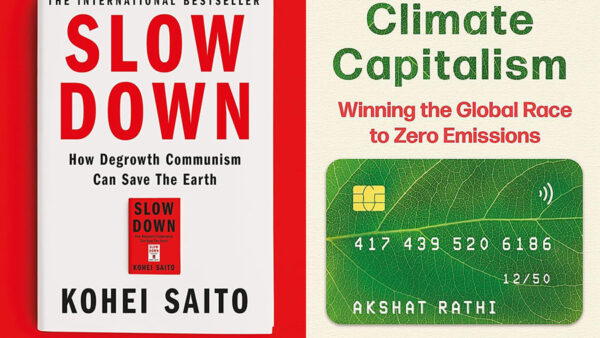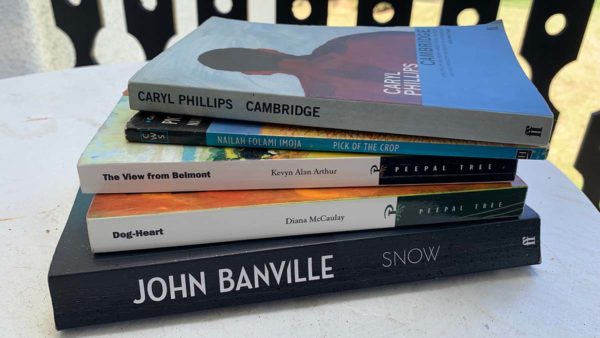In my recent month-long break from the internet, I learned a few things. It’s easy to let constant connectivity delude you into thinking that you really need to be in touch with the world all the time. After all, new emails come in every hour, new tweets and blog comments pile up, all demanding a response.
But what I learned in taking a break from it all was that I’m really not that important. When I came back to check my email for the first time in a month, of course there were lots of messages – so many that Gmail gave up counting:
Most of them, however, were not important – newsletters, announcements, invitations to parties in London, press releases, credit card statements, etc etc. When I looked at the really important ones, I could whittle it down to a handful.
There was an email telling me I’d won 3rd place in the Nottingham Short Story Competition and asking where they should send the £125 cheque – that’s one I replied to quickly! There was a lovely email from a reader who’d enjoyed On the Holloway Road and wanted to get in touch – that was next on the list. There were a few others from friends who didn’t realise I was away, a couple of updates on short story collections I’m part of, and that was about it.
Over the course of that month I could have spent countless hours checking and re-checking my email several times a day, all for that handful of important messages. It really made me think about how I use my time.
Of course, the sample is a little skewed. I did let everyone know I would be away, so maybe people didn’t email for that reason. In an average month I’d probably get more important messages. But really, when I think about it, not that many more. I spend a lot of time essentially processing garbage, hoping for an occasional nugget of gold.
On a slightly superstitious note, do you remember your mother telling you “A watched pot never boils”? I can’t help wondering whether the high proportion of good news in my inbox was a result of not checking for so long. While I wasn’t watching, the pot boiled over!
Anyway, I’d love to say that since I got back, I’ve changed my ways and not checked email so often. But it hasn’t worked out that way. I am, it seems, an incurable optimist. I know I’m not important, and that most of my email is not important, but still I check it several times a day, just in case. In fact, it’s open as I write this. If an email comes in, I’ll interrupt what I’m doing to go and read it. I think there are powerful psychological triggers at work here, overriding common sense and experience. I could skip email for a month with no consequences, but still I can’t shake the absurd feeling that if I don’t check, I might miss out on something really important…
How often do you check email? How many truly important messages do you get? Why is it sometimes hard to unplug?





There are 12 comments
Congratulations on winning the short story competition!
I am the same about checking my email, sometimes I can get obsessive (that happens mostly when I am stressing out waiting for a response that never comes). I try to cure that by keeping busy. I don’t have that many important messages waiting but you never know when one might come up!
It’s hard to unplug because we are so used to being plugged we forgot how it is not to.
Thanks Delia! Sometimes I do have the excuse of waiting for a response, but sometimes I’m just checking because I want something to happen in my life. I find that more often with me it’s an avoidance technique – I go online to do something tedious or unpleasant, like finding magazines to submit a short story to, and instead of dealing with it and facing the possibility of rejection that it entails, I check email instead… just in case 🙂
I really like the term ‘constant partial stupidity’ which has been coined for our fractured attention due to the repeated interruptions of cell phones, email, etc. I watch my son trying to revise for exams while having an ongoing skype call with his girlfriend and completely despair! So, step away from the keyboard. I really must practice that!
Hah, I love that! Wish I’d coined it myself. It must be frustrating to watch your son doing that. Things are so different for people who grew up with this constant connection to the world, and to them it must be normal. Even for those of us who can remember a time before the internet, it’s difficult to disconnect from it, so for people who never knew another way, I can only imagine…
Congrats on the short story win! That’s fantastic. 🙂 And yes, I can relate to this post in a lot of ways.
Thanks Michelle! Yes, I remember you have disconnected at various times, or at least cut back drastically on your online activities in order to focus on your writing. It needs to be done sometimes.
Speaking of focus, as I write this comment I have 7 tabs open (including 2 email accounts!!), plus iTunes playing me some Isaac Hayes. So forgive me if I say anything constantly partially stupid.
Congratulations on the sthory story!
I can really relate to this post too. After just having been in Sweden for 10 days without internet I realised how little I actually needed it. I was anxious to check my email when I came home but realised that I had not recieved anything of importance while I was away. I am considering checking my email every 2nd day, if not less because most things can wait those two days right?
I should also stop checking Twitter first thing, when I turn on the computer to sit down and write. The intention was to write, not to update on social media and I often get distracted and start surfing around on the internet, using a lot of time on… What, really?
When I go back from my holiday break I will have to check my Uni email everyday, as it is required and neccesary. But for the rest I will make an effort to not check up and update several times a day and instead use my time more wisely, on something that really matters.
Thanks Lea! Yes, I think every 2nd day is about right. For now I’m just concentrating on the simpler goal of checking it once a day, replying to anything that needs a reply, and then not checking again all day. So much better than leaving it open all the time and constantly going back. I’m not good at it yet, though – habits are hard to break.
My rule for writing, which I’ve stuck to pretty successfully for years now, is to keep the internet switched off until I’ve done my writing for the day. I need a clear head to write, and Twitter is the precise opposite of a clear head! Once I’ve finished, then I wade into the social media morass. But even then I try to put limits on it – half an hour a day should really be enough. That part is not working so well, though!
By the way, thanks for the Nemirovsky recommendation on your blog – I’ll try out Suite Francaise. Love Chekhov’s short stories too. Have you read ‘Russian Short Stories from Pushkin to Buida”? I loved it, and think you might too, based on that post. I reviewed it on this blog – you can find it using the search box if you’d like.
I feel the same, coming back from a break to see lots of emails I think wow, I’m pretty popular/important. Then you factor in length of time away and what those emails are and, yes, not really very important at all. The nice thing is that when you do get an important email, it’s more special, and you have more time to write a good response.
Congratulations on the win!
Thanks Charlie! I suppose you’re right about having more time for the important ones, although I tend to get so overwhelmed by the overall numbers that I just try to get them all out of the way as quickly as possible. I think I should adopt your approach though!
Congrats, anyway, on winning 3rd place of the short story competition. I would have replied that first just as you did.
Yes, that’s an important one! Thanks Geosi, and hope you’re doing well!